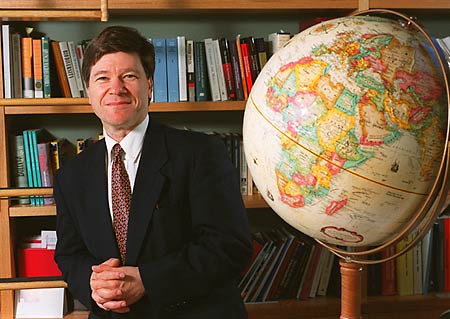New Orleans: Bono, Paul McCarthney, Madonna, Snoop Dogg, Beyonce, and a mess of others in ten cities and eight countries were singing about it, there was a movie on HBO about it, and the richest countries in the world meeting as the G8 in Scotland are talking about it, so I just have to say that this 4th of July, poverty is a happening thing on everyone’s mind.
Not!
But, there has been some progress, so there is reason to start paying attention. Louis Jamerson, an organizer with SEIU in Los Angeles now, who had worked with me on the HOTROC campaign in New Orleans a couple of years ago and had traveled in 2004 with the Organizers’ Forum to South Africa sent me an email recently when substantial debt relief was announced asking if I thought countries like South Africa could really jump on their feet now. We had met with some of the Jubilee debt forgiveness people in Johannesburg, so we knew that the burden of interest payments on many countries of the world was staggering. Forgiving some of this debt is a huge step forward without doubt. Only a step though. Simply put, we have to put more money where our mouths are.
One of the ubiquitous voices these days on this issue is Jeffrey Sachs, the economist and director of the Earth Institute at Columbia University, who has been both a controversial architect of poverty as a Mr. Fixit early in his career in Poland, Bolivia, Russia and elsewhere, where his record of creating pain and misery was amazing, but nonetheless in his new conversion has become a fierce advocate for more money from the richest nations being given outright to the poorest. I read his new book, The End of Poverty: Economic Possibilities for our Time, this weekend to get a better sense of the meat of the matter.
I skipped the first 170 odd pages of self-justification of his early career and went right to the last 200 pages of his self-promotion on the current stage of his career, and once one conditions oneself to ignore the endless name dropping and self aggrandizement, Sachs in fact offers some real information to the debate and rightly pokes some holes in some of the blustery excuses for doing less or less than nothing. Let me share some of this as it hits home in the United States.
The whole argument is how to get the 20 odd richest countries — the euphemistically called “donor community” — to give .7 of 1% of their GNP to foreign aid on this score as part of the Millennium goals commitment which all of them made to eradicate extreme poverty by 2025. Some countries already do this and many are on track to make the number. The US unfortunately is a laggard and scofflaw, and here is where Sachs’ examples are telling.
In one example he compares growth rates in the US as our economy expands against the metrics of our contribution of .7 of 1% of the GNP to see what real impact it would have on the economic well being of the American people over the next 20 years. Roughly four (4) months is the answer. Making our contribution, which is part of the lions’ share and would save the lives of millions and millions of people, would mean that we would delay our own increase in family wealth by a mere four freaking months in our own expanding per capita wealth.
Remember you bootstrappers that this is not about equalizing everyone or even ending poverty really. All of this is about ending extreme poverty — the killing poverty that is sentencing a billion people currently to a life of constant struggle which they will inevitably lose. We belly up with our share and we can make this progress, but there will still be plenty of poverty, it will simply be of a more humane nature.
Sachs also had an idea that is hard not to support for how to finance an increase in our contribution by taxing the rich a surcharge towards our contribution to the world. He suggests a five percent (5%) income tax surcharge on incomes above $200,000 directed toward the U.S. contribution to end global poverty, which would yield $40 billion right now to throw in the pot to make this happen.
All adds up and the difference is amazing and measured literally in the lives versus death of hundreds of millions of people.
